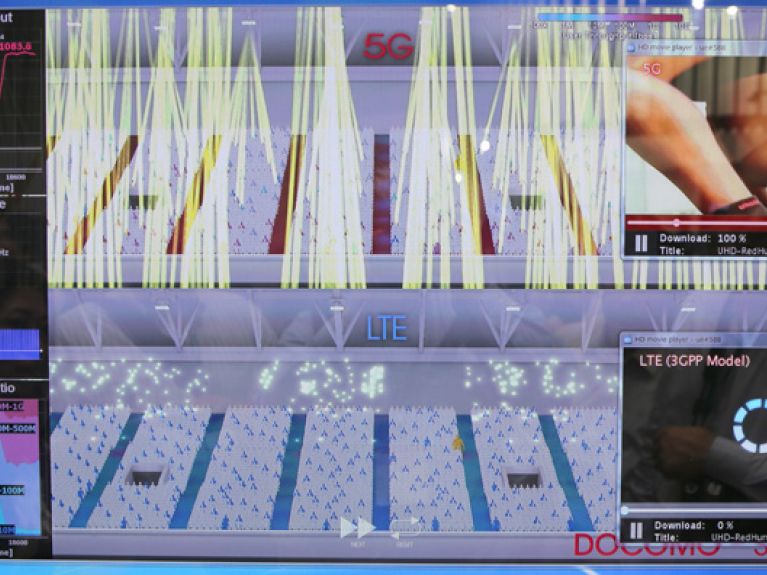With 5G into the future
The fifth generation (5G) of wireless data transmission systems is to pave the way for Industry 4.0.

Germany has been ranked sixth in an international comparison of ten leading digital economies. That is the finding of the current “Monitoring Report Digital Economy 2015” published in early November 2015 by Matthias Machnig, state secretary at the Federal Ministry for Economic Affairs and Energy. Although Germany’s ICT sector accounts for 4.6 percent of the value added by trade and industry, which puts it ahead of the country’s traditional mechanical engineering industry and only marginally behind automotive engineering, Machnig still sees “room for improvement” ahead of the National IT Summit that will be taking place in Berlin at the end of November 2015. One key issue on the path towards “Industry 4.0” is to achieve high data capacities and low response times – the buzzword in this context is “5G”.
Huawei is currently the world leader. The Chinese company is confident that it will be able in just five years’ time to transmit data at speeds one hundred times faster than today, with one thousand times the capacity, extremely low delay rates and only a thousandth of the energy consumption. A densely packed DVD could then be loaded in less than four seconds, which is 625 times faster than with the best DSL connection. To achieve this, Huawei is also conducting research in Germany. The European Research Center in Munich coordinates 18 European research institutions and is involved in the development of 5G technologies. A 5G test environment has also been set up in Munich.
Advances in Dresden
Founded only a year ago, the “5G Lab” at Technische Universität Dresden last year gave the first ever public demonstration of data transmission using this technology. Researchers wirelessly transmitted data between two computers, using a current development version. At 5 gigabits per second, the speed that was achieved was 50 times higher than would be currently possible. In future, the researchers plan to achieve bandwidths of up to 100 gigabits per second. Besides conventional applications in the area of mobile networks, the 5G standard should also simplify data connection in our everyday personal lives and in industry. Significantly lower response times could take real-time traffic management systems, remote operations and gaming applications into entirely new dimensions. The Dresden boffins likewise expect the 5G technology to be introduced in just five to seven years.
National IT Summit on 18 and 19 November 2015 in Berlin

